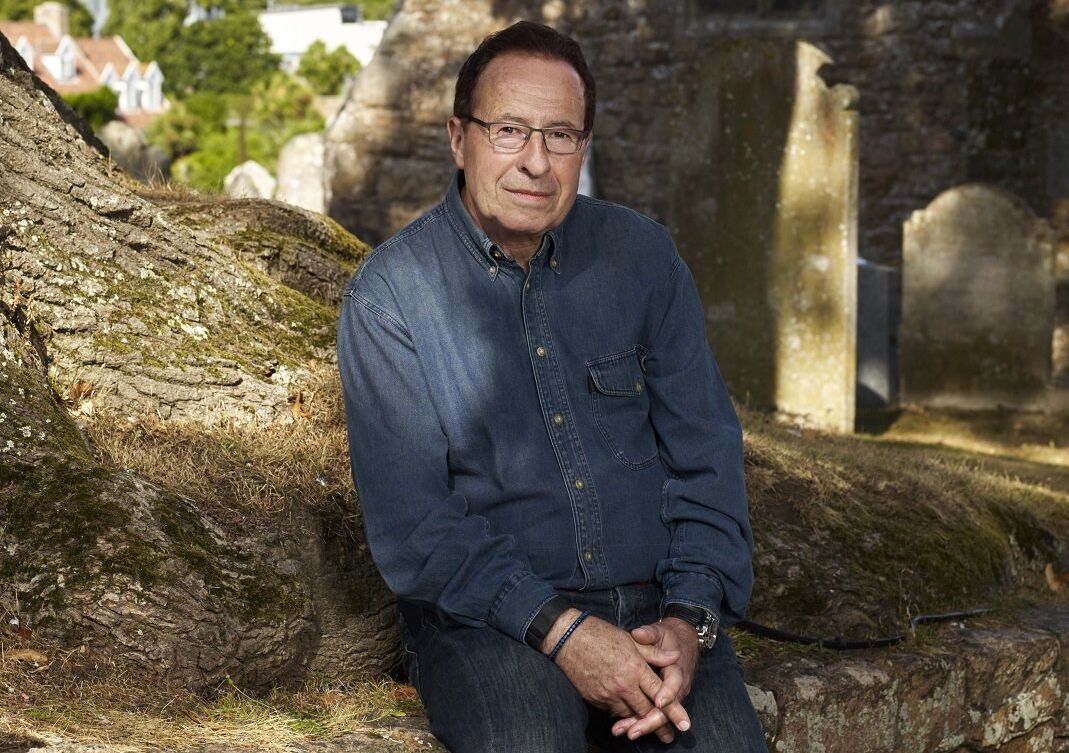Active voucher codes

You are one of the most lauded crime writers in the UK – and loved and read by many Scandinavians. For anyone who has not yet taken part of your particular world of crime – how would you introduce them to your particular literary universe?
– I find the worlds of the police and of criminals equally exciting and fascinating. I write my Roy Grace crime novels from three perspectives – that of the victims, that of the criminals, and that of the police who are trying to understand and catch them. But my police offers are more than mere cops doing a job, they are human beings with family lives – some loving, some complex, some tragic. Each novel has a theme and is different from the others, which is why they can be read in any order – whether it is the world of art forgery, or of someone faking their disappearance, or in my newest one, skulduggery inside the Royal Household of Buckingham Palace.
– I love to write about things that passionately interest me, and to immerse myself in research, both behind the scenes with the police – Roy Grace is based on a real former senior homicide detective, who I work very closely with on each book. And I write the way I like to read: Short chapters and constant cliff-hangers.
At Gothenburg Book Fair, you will take part in a seminar with Icelandic suspense novelist Yrsa Sigurdadóttir – where you will, among other things, talk about British Crime vs Nordic Noir. What is your take on Nordic Noir? Is there a difference on a country level, or is it all down to individual authors?
– I think in general (and this is a broad generalisation) that it is not so much the difference between British Crime and Nordic Noir as it is between European crime writing and American crime writing. With roots going right back before Conan Doyle and Agatha Christie, through the Golden Age, to the present day, in general European crime novels begin with a dead body and then the investigation unfolds. Whereas far more often the US crime novels begin with the victim alive and in peril, often for many chapters. This creates a kind of European police procedural vs a US crime thriller environment.
GBF is the biggest cultural event in the Nordic region, but it is also the host of Sweden’s biggest festival for suspense literature. What is it, do you think, that has made a genre about death and the solving of who did what, so wildly popular? What need does it fulfill?
– Crime has always been hugely popular throughout the history of literature, but it is only relatively recently – the last 70 years – that booksellers have broken literature down into distinct categories – such as Crime, Romance, Historical, Spy Thrillers, Horror, Fantasy, Science Fiction, Literary Fiction, etc. I think what is forgotten is how many of the greatest writers of the past wrote what we could today term “crime genre”, For instance over half of Shakespeare’s plays contain trial scenes! He wrote plays because books hardly existed in his time. Look at Dostoevsky’s Crime and Punishment for instance, it is a great crime novel! Go right back to the Greeks, such as Sophocles – all those tragedies were “crime” of a sort. Much of what Charles Dickens wrote could be deemed crime. All these writers were fascinated too by the dark side of human nature.
– As to why crime is so popular, I think there are several reasons. One of the big appeals of the genre is that it enables readers to experience crime vicariously. At one level it is like the ride on the ghost train, where you know, despite whatever horrors await, at some point the doors will bang open and you will be back out in safe daylight. At another level it allows readers to “rubber neck” horrific things without the churning stomach they would get reading the same thing in the papers. And I have a theory that another of the deep rooted pleasures of the crime novel is that it taps into our survival genes. It enables us to study victims and learn from them. Ok, she got murdered because she didn’t look around when she entered the car park… so when I enter a dark multi-storey, I’m not going to make that same mistake…
– Another appeal is the fascination about what is the difference between these criminals and ourselves? What is it that stops us doing the same – or makes them want to what they do? Are they hard-wired differently, or just brought up in some way that warped them? Or is there no difference at all? Could we be like them at some future point in our own lives? What would that feel like? Would we be able to live with our consciences?
– I am fascinated by human nature, why we do the things that we do and I think the best way to observe the world is through the eyes of the police. During a career in the police force the average officer will see almost every facet of the human condition – from violence to tragedy to comedy. From wealth to poverty. From good people to totally evil people. By writing through the lens of the police I believe the authors of crime fiction can examine very many aspects the world in which we live more than through any other genre.